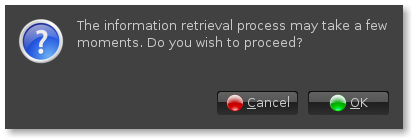Current Features
* Ability to download, compile and install latest kernel automatically
* Ability to compare latest kernel information with your current running kernel
* GUI designed with Glade provides easy accessibility for any user
Supported Platforms
At the moment, KernelCheck is only supported on Debian-Based platforms. Some of these include Debian, Ubuntu (or any derivatives), Mint, etc. RPM and Slackware based are planned to be supported in the future.
Note:- This is only for advanced users.This was tested in Ubuntu Feisty and Gutsy
Installation Procedure
First you need to download KernelCheck latest version from here (kernelcheck 1.0.5 At the time of writing this article)
wget http://garr.dl.sourceforge.net/sourceforge/kcheck/kernelcheck-1.0.5.tar.gz
Unpack the archive using the following command
tar -xzf kernelcheck-1.0.5.tar.gz
Install KernelCheck
cd kernelcheck-*
sudo python setup.py install
Using Kernelcheck
KernelCheck can be used in a variety of ways, most commonly by opening a terminal and typing in
kernelcheck
If the program started correctly, a dialog box like the one below should appear

If you click yes, after a few moments one like the one below should appear
The ‘Build Latest Kernel’ button will download, compile, and install the latest stable kernel from kernel.org. By selecting the checkbox ‘Apply prepatch instead of normal patch’, it will apply the listed prepatch (development).
The ‘Check for Program Updates’ button will go to the KernelCheck website and parse finger_banner2 for the latest version of KernelCheck. If you are running the latest version, it will say so, and if you are not, it will ask you to update.
You can edit the /usr/bin/kernelcheck files to your needs, changing anything you like, because my program is under the GNU Public License Version 3 released June 2007.
this article was taken from : http://www.ubuntugeek.com/
0 comments:
Post a Comment